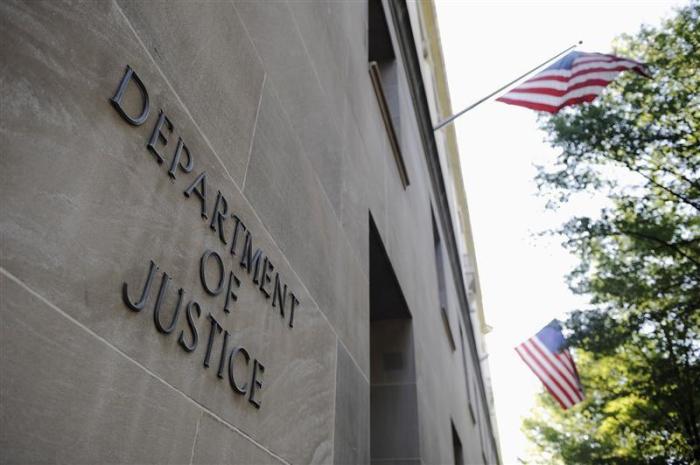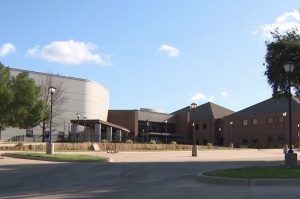Biden admin. asks Supreme Court to halt Texas heartbeat abortion law

The Biden administration is asking the U.S. Supreme Court to reverse a lower court decision allowing a Texas law banning abortions as early as six weeks of gestation to remain in effect as litigation continues.
In a brief filed Monday, Acting U.S. Solicitor General Brian Fletcher asked the U.S. Supreme Court to vacate the "stay of [the] preliminary injunction issued by the United States Court of Appeals for the Fifth Circuit" that allows Texas' Senate Bill 8 to remain in effect as the case is adjudicated.
Senate Bill 8, also known as the Texas Heartbeat Act, bans abortions after a fetal heartbeat can be detected, usually at around six weeks gestation. The law also lets private citizens sue those who perform abortions or assist women in obtaining abortions and leaves enforcement of the measure to private citizens instead of state officials.
Fletcher argues that "Texas 'delegated enforcement' of the law 'to the populace at large' in a system of private bounties" to "avoid pre-enforcement suits against state officials."
The legal filing cited the Supreme Court decision Planned Parenthood v. Casey as evidence that "Texas has, in short, successfully nullified this Court's decision within its borders." The 1992 ruling held that "a State may not prohibit any woman from making the ultimate decision to terminate her pregnancy before viability."
The term "viability" refers to an unborn baby's ability to survive outside the womb.
"The United States has authority to seek equitable relief to protect its sovereign interests — including its interest in the supremacy of federal law and the availability of the mechanisms for judicial review that Congress and this Court have long deemed essential to protect constitutional rights," he wrote. "Allowing S.B. 8 to remain in force would irreparably harm those interests and perpetuate the ongoing irreparable injury to the thousands of Texas women who are being denied their constitutional rights."
Fletcher maintained that "the consequences of Texas's actions, moreover, are not confined to its own borders."
He wrote that "pervasive interference with access to abortion in one State affects 'the availability of abortion-related services in the national market' by forcing women to travel to clinics in other states, burdening 'the availability of abortion services' in neighboring jurisdictions."
Fletcher acknowledged that "a petition for a writ of certiorari before judgment" on the merits of the legal challenge in the lower courts constituted an "extraordinary remedy." But he contends that "the issues presented by Texas's extraordinary law are 'of such imperative public importance as to justify deviation from normal appellate practice and to require immediate determination in this Court.'"
"The fundamental question presented in this case is whether States may nullify disfavored constitutional rights by purporting to disclaim their own enforcement authority and delegating enforcement of unconstitutional laws to private bounty hunters," the petition states.
"S.B. 8's use of that scheme has already allowed Texas to nullify this Court's precedents for six weeks. That state of affairs should not be allowed to persist — or spread to other States or other rights — without this Court's review."
The Supreme Court asked Texas to respond to the DOJ request by midday Thursday, according to Reuters.
Pro-life advocacy groups criticized the Biden administration's attempt to overturn the law.
"In no other area, from Kabul to the border crisis to inflation, has President Biden called for a whole-of-government response except in supporting abortion," Carol Tobias of the National Right to Life lamented in a statement.
"Clearly, abortion is the single most important thing to the Biden administration," she added. "The Biden administration's unconditional support of the abortion industry shows just how far pro-abortion Democrats will go to curry favor with abortionists and abortion supporters."
In a statement shared with The Christian Post, Kimberlyn Schwartz of Texas Right to Life described Biden as "the most pro-abortion president of all time." Schwartz predicted that "his radical attack on the Texas Heartbeat Act will not succeed, and the law will continue to save lives."
Since Gov. Greg Abbott signed it into law in May, Senate Bill 8 has faced a lengthy legal battle.
The Supreme Court declined to block the law from going into effect, enabling it to become law on Sept. 1. While a district court judge issued a temporary restraining order against the law on Oct. 6, the Fifth Circuit Court of Appeals issued a stay two days later following an appeal from the Texas Attorney General.
Public opinion polling has shown that Senate Bill 8 has received a mixed reception from the American public. A poll from Rasmussen Reports conducted last month revealed that 46% of Americans approve of the law while 43% disapprove. At the same time, 46% of respondents expressed support for the president's vow to implement a "whole-of-government effort … to ensure that women in Texas have access to safe and legal abortions."
Following the implementation of Senate Bill 8, congressional Democrats worked to pass the Women's Health Protection Act, which would codify the 1973 Supreme Court decision that legalized abortion nationwide, Roe v. Wade, into federal law. The legislation would prevent states from passing certain pro-life laws.
The measure narrowly passed the Democrat-controlled House of Representatives but is unlikely to pass the evenly divided Senate, where most legislation requires 60 votes to become law.
The Biden administration's plea to the Supreme Court comes as calls to add justices to the bench to dilute the voting power of the Republican-appointed majority continue.
Documents released ahead of a Friday meeting of a commission created by Biden to examine potential reforms to the Supreme Court revealed that members are divided about the impact of increasing the number of Supreme Court justices.
Supreme Court justices are slated to weigh the constitutionality of Mississippi's 15-week abortion ban. A decision in favor of the state, which seeks to uphold the law, would significantly weaken the precedent set by Roe v. Wade.
Ryan Foley is a reporter for The Christian Post. He can be reached at: ryan.foley@christianpost.com





























